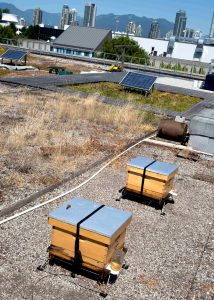
Some sweet new activities are underway on BCIT campus rooftops around the Lower Mainland. The BeeCIT honeybee and pollinator program, has expanded beyond its initial Burnaby base, to include honey bee hives at the Downtown, Marine, and Aerospace campuses. BCIT Facilities teamed up with urban beekeeping partner Alvéole to install the hives that house docile Italian bees.
Sustainable practices at BCIT
“Sustainability is at the heart of every decision we make,” explains Adam Dickinson, Manager of Transportation and Grounds. “The BeeCIT program ties in with our campus plan. We want to make natural space accessible for the community.”
Bees and other pollinators have a wealth of blossoms to choose from at BCIT due to sustainable planting and landscape maintenance practices. Pollinator-friendly trees, shrubs, perennials, ground covers and annual flowers are grown at all BCIT campuses and include a variety of species that bloom throughout the season.
In addition to creating beautiful spaces, BCIT landscapers plant edible areas with crops like apples, blueberries, rhubarb, cherry tomatoes, and more. Many of them rely on pollinators to set their fruit. In fact, pollination is essential for about 75% of the food we eat. Campus crops are grown in a healthy way without herbicides or pesticides, and are available for the community to enjoy.
A tasty incentive to promote beekeeping
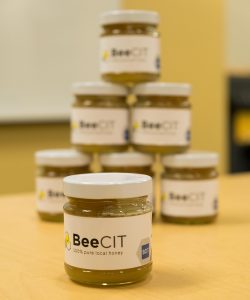
According to Adam, Alvéole guarantees its partners an annual production of honey per hive. When harvesting, the beekeeper leaves enough in the hives to sustain the bees through the winter, and the rest is shared among the partners. So, if one partner’s hives produce more than their share, the surplus goes to others that may have come up short. “It is great to be a part of such a cooperative community,” says Adam. The harvested honey is a tasty treat to promote the joy of beekeeping.
“Our BCIT grounds team enjoys this program and takes part during the hive visits. They handle the bee frames and learn just how harmless our six-legged friends are,” says Adam. “We would like to educate and provide similar opportunities for as many people as possible through our workshops.” These will begin online and eventually be in-person. BeeCIT workshops will first be open to BCIT faculty, staff, and students and then to the broader public.
Have you subscribed? Sign-up to receive the latest news on BCIT.
As well as campus flowers, the bees have plenty of food, even in the urban areas. “Bees can travel for kilometres in search of pollen,” says Adam. “For example, Stanley Park, the naturalized waterfront areas in Richmond, and the North Vancouver Seawall are all well within the range of our campuses. Pollinators will forage among the landscaped rooftops and balcony gardens in the residential area high rises. So please—if you can—grow something that flowers.” We can all do our part to sustain the pollinators who do so much for us—you never know it just might be a BeeCIT bee.
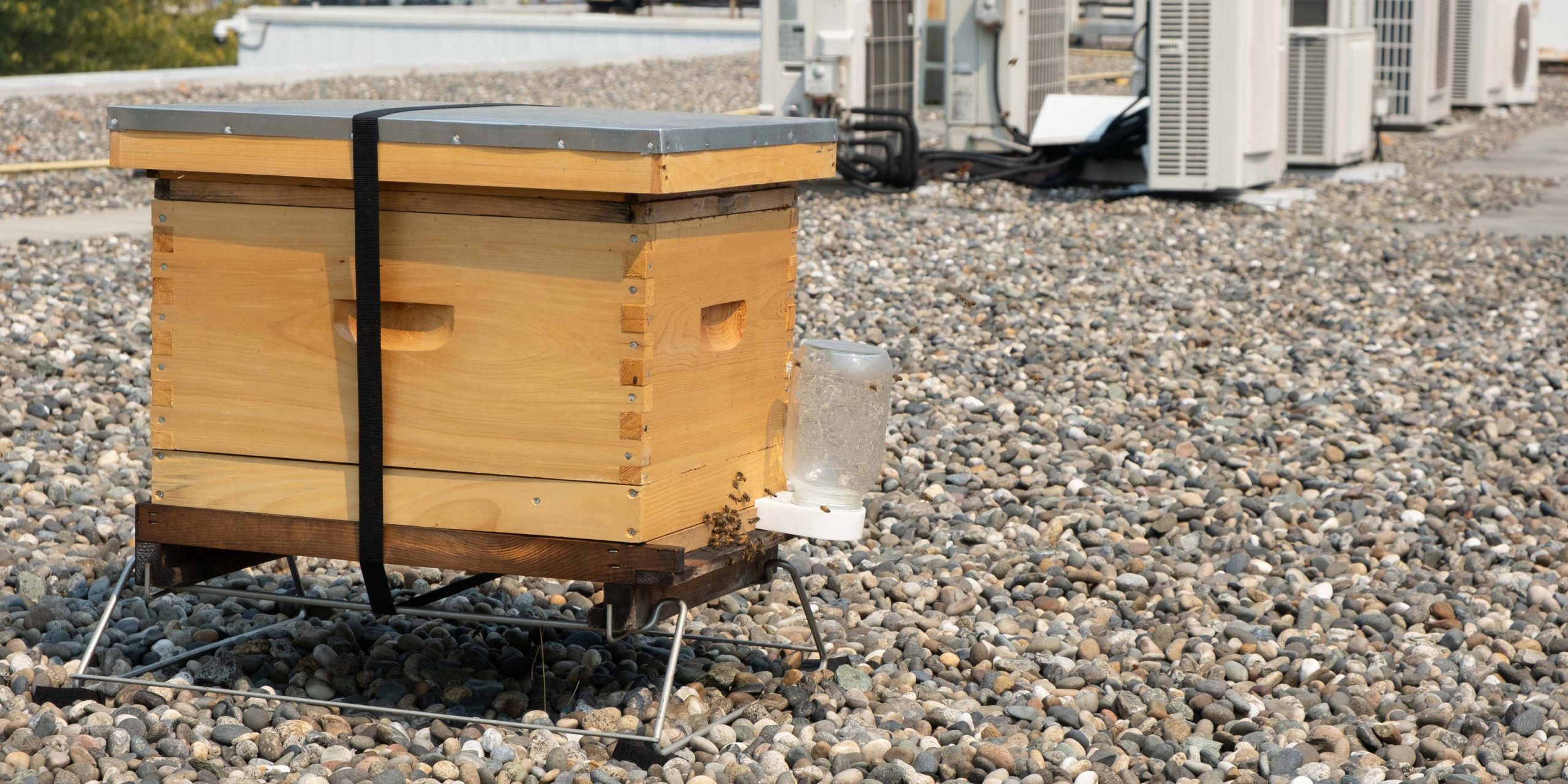
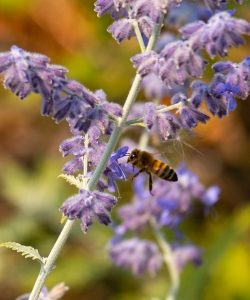
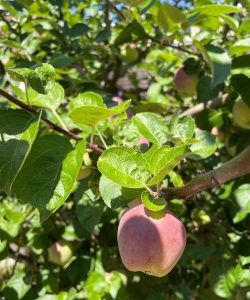
What wonderful news, thanks for creating a buzz!
LOVE LOVE LOVE this program. Way to go Adam & team, and thank you Mirabelle for capturing the story and helping to spread the buzz (get it ;O), buzz).